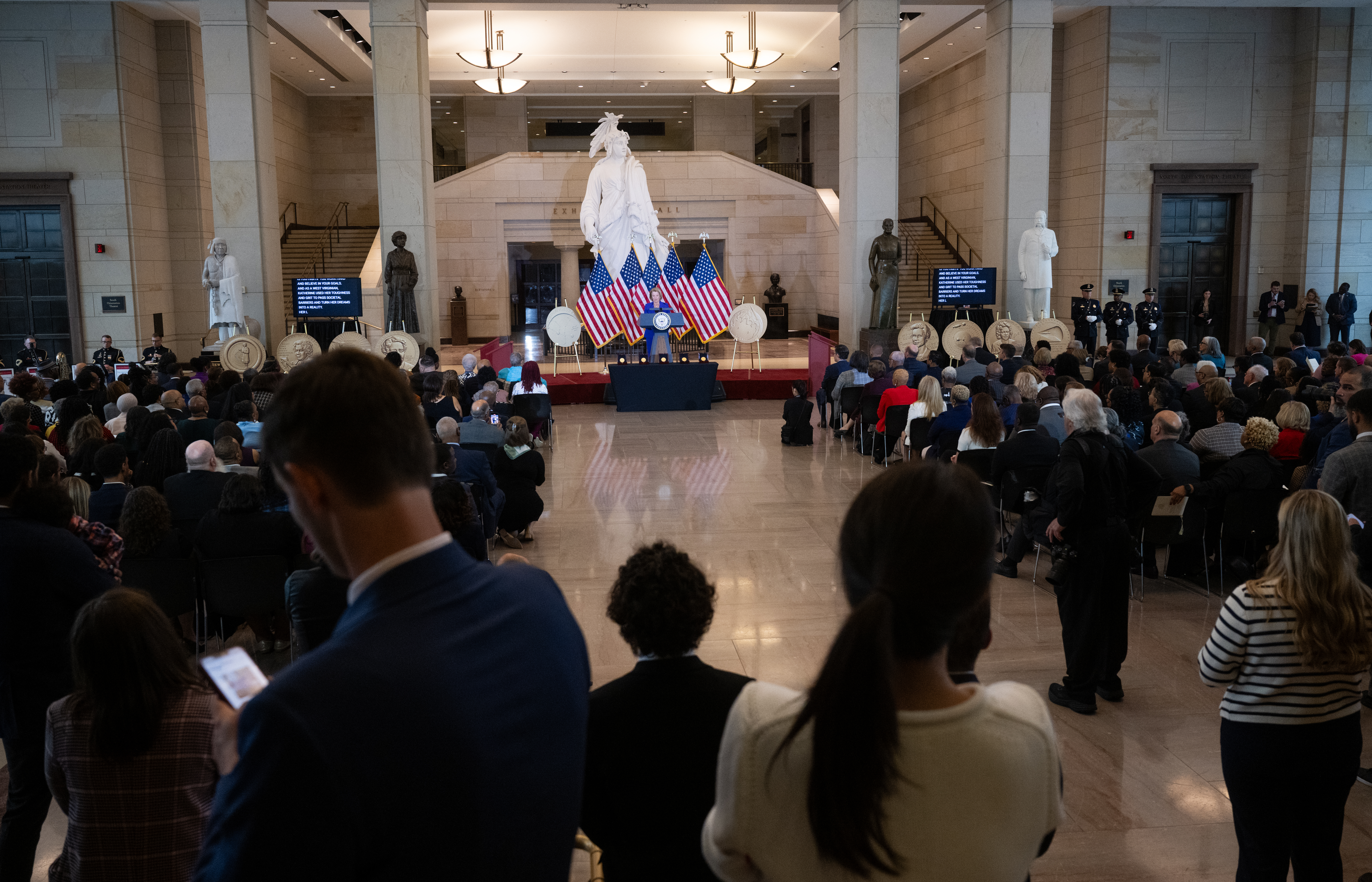4 Min Read NASA’s Hidden Figures Honored with Congressional Gold Medals 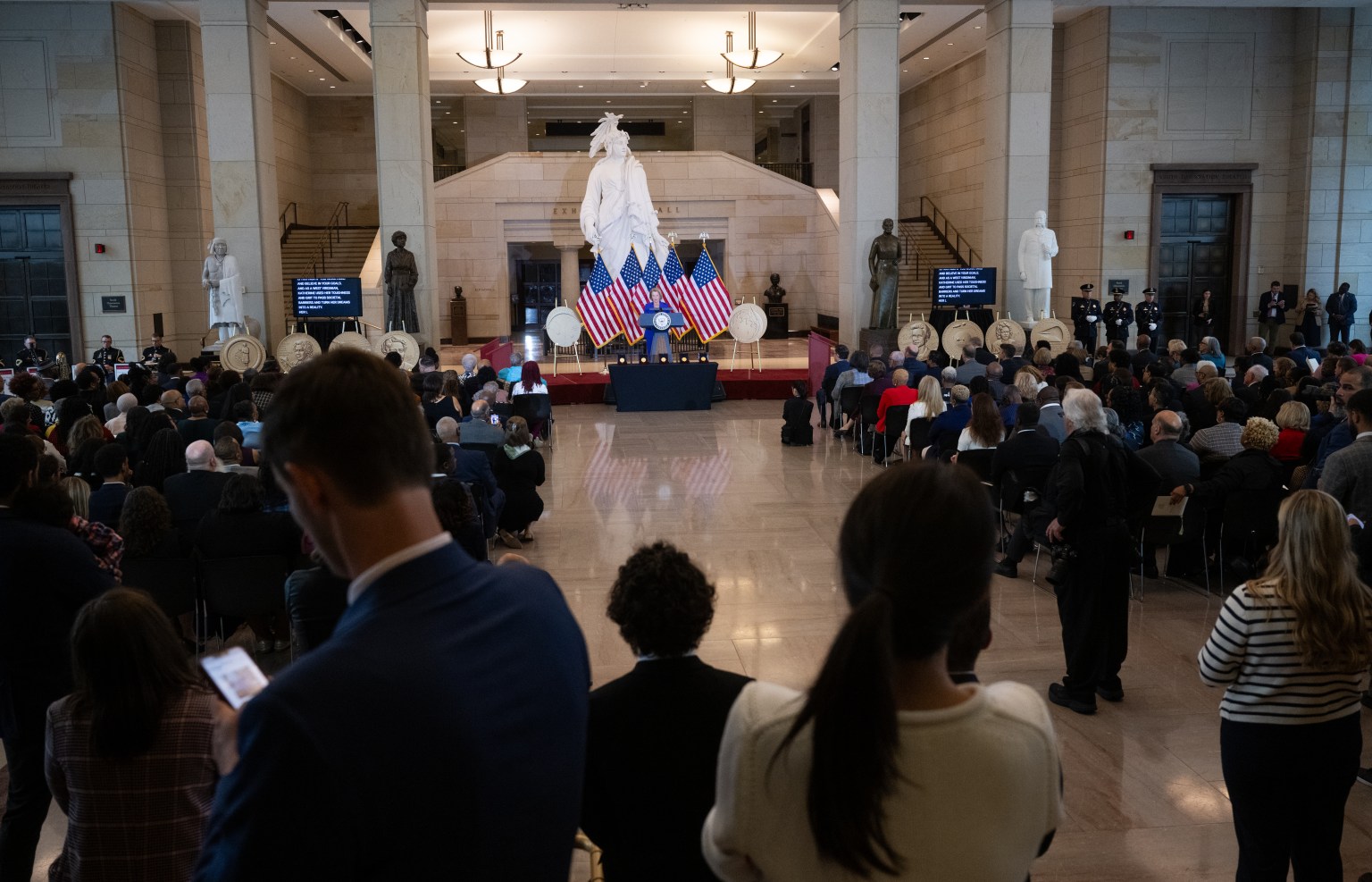 Sen. Shelly Moore Capito (R-WV), delivers remarks during a Congressional Gold Medal ceremony recognizing NASA’s Hidden Figures, Wednesday, Sept. 18, 2024, in Emancipation Hall at the U.S. Capitol in Washington. Credits: NASA/Joel Kowsky A simple turn of phrase was all it took for U.S. Sen. Shelley Moore Capito of Katherine Johnson’s home state of West Virginia to capture the feeling in Emancipation Hall at the U.S. Capitol in Washington.
Sen. Shelly Moore Capito (R-WV), delivers remarks during a Congressional Gold Medal ceremony recognizing NASA’s Hidden Figures, Wednesday, Sept. 18, 2024, in Emancipation Hall at the U.S. Capitol in Washington. Credits: NASA/Joel Kowsky A simple turn of phrase was all it took for U.S. Sen. Shelley Moore Capito of Katherine Johnson’s home state of West Virginia to capture the feeling in Emancipation Hall at the U.S. Capitol in Washington.
“It’s been said that Katherine Johnson counted everything,” she said. “But today we’re here to celebrate the one thing even she couldn’t count, and that’s the impact that she and her colleagues have had on the lives of students, teachers, and explorers.”
That sense of admiration and awe toward the legacy and impact of NASA’s Hidden Figures was palpable Wednesday during a Congressional Gold Medal Ceremony to honor the women’s work and achievements during the space race.
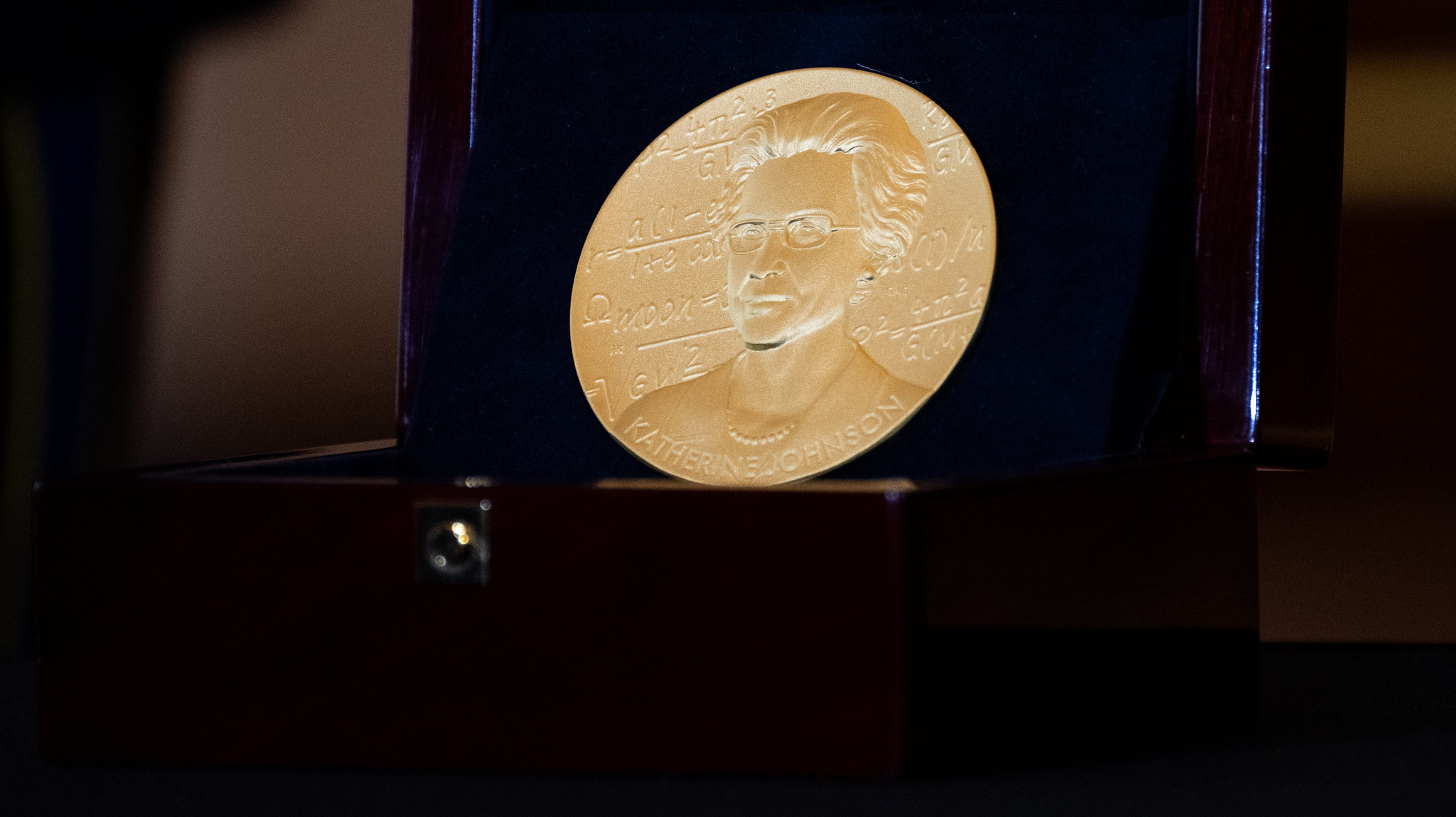 The Congressional Gold Medal in recognition of Katherine Johnson in recognition of her service to the United States as a Mathematician is seen during a ceremony recognizing NASA’s Hidden Figures, Wednesday, Sept. 18, 2024, in Emancipation Hall at the U.S. Capitol in Washington. Katherine Johnson’s family accepted this gold medal on her behalf.NASA/Joel Kowsky The ceremony, hosted by House Speaker Mike Johnson, honored Johnson, Dorothy Vaughan, Mary Jackson, and Dr. Christine Darden of NASA’s Langley Research Center in Hampton, Virginia, along with all the other women who served at the agency and its precursor, the National Advisory Committee for Aeronautics, or the NACA, as computers, mathematicians, and engineers.
The Congressional Gold Medal in recognition of Katherine Johnson in recognition of her service to the United States as a Mathematician is seen during a ceremony recognizing NASA’s Hidden Figures, Wednesday, Sept. 18, 2024, in Emancipation Hall at the U.S. Capitol in Washington. Katherine Johnson’s family accepted this gold medal on her behalf.NASA/Joel Kowsky The ceremony, hosted by House Speaker Mike Johnson, honored Johnson, Dorothy Vaughan, Mary Jackson, and Dr. Christine Darden of NASA’s Langley Research Center in Hampton, Virginia, along with all the other women who served at the agency and its precursor, the National Advisory Committee for Aeronautics, or the NACA, as computers, mathematicians, and engineers.
“The pioneers we honor today, these Hidden Figures — their courage and imagination brought us to the Moon. And their lessons, their legacy, will send us back to the Moon,” said NASA Administrator Bill Nelson.
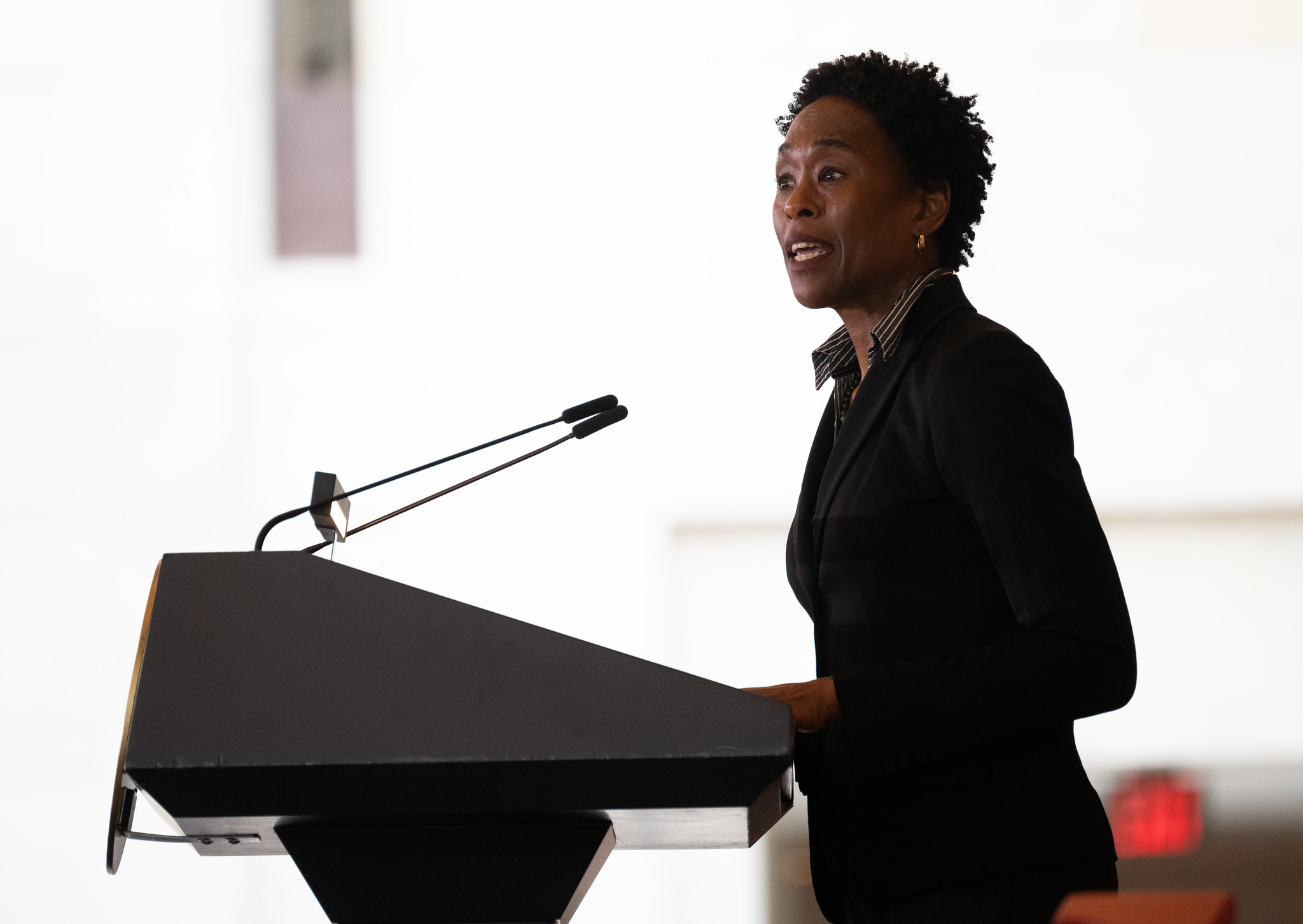 Margot Lee Shetterly, whose 2016 nonfiction book “Hidden Figures: The American Dream and the Untold Story of the Black Women Who Helped Win the Space Race,” brought awareness to the stories of NASA’s human computers, spoke at the event.NASA/Joel Kowsky Author Margot Lee Shetterly detailed the stories of the women from NASA Langley in her 2016 nonfiction book “Hidden Figures: The American Dream and the Untold Story of the Black Women Who Helped Win the Space Race.” Though the book focused on NASA Langley, where Shetterly’s father worked, it helped raise awareness of similar stories around NASA.
Margot Lee Shetterly, whose 2016 nonfiction book “Hidden Figures: The American Dream and the Untold Story of the Black Women Who Helped Win the Space Race,” brought awareness to the stories of NASA’s human computers, spoke at the event.NASA/Joel Kowsky Author Margot Lee Shetterly detailed the stories of the women from NASA Langley in her 2016 nonfiction book “Hidden Figures: The American Dream and the Untold Story of the Black Women Who Helped Win the Space Race.” Though the book focused on NASA Langley, where Shetterly’s father worked, it helped raise awareness of similar stories around NASA.
A film adaptation of the book starring Taraji Henson as Johnson, Octavia Spencer as Vaughan, and Janelle Monáe as Jackson came out later that year and further elevated the topic. NASA participated under a Space Act Agreement with 20th Century Fox in activities around the movie, to provide historical guidance and advice during the filmmaking process.
In her remarks, Shetterly noted that even as the Hidden Figures made such key contributions to NASA and the NACA before it, they remained active in their communities, leading Girl Scout troops and delivering meals to the hungry.
“They spent countless hours tutoring kids so that those kids, too, would see the power and the beauty of numbers they believed in, tending to the small D democracy that binds us to each other as neighbors and as American citizens,” she said.
The medal citations were as follows:
Congressional Gold Medal to Katherine Johnson, in recognition of her service to the United States as a mathematician Congressional Gold Medal to Dr. Christine Darden, for her service to the United States as an aeronautical engineer Congressional Gold Medals in commemoration of the lives of Dorothy Vaughan and Mary Jackson, in recognition of their service to the United States during the space race Congressional Gold Medal in recognition of all the women who served as computers, mathematicians, and engineers at the National Advisory Committee Family members of Johnson, Vaughn, Jackson and Dr. Darden accepted medals on their behalves. Dr. Darden watched the ceremony from home.
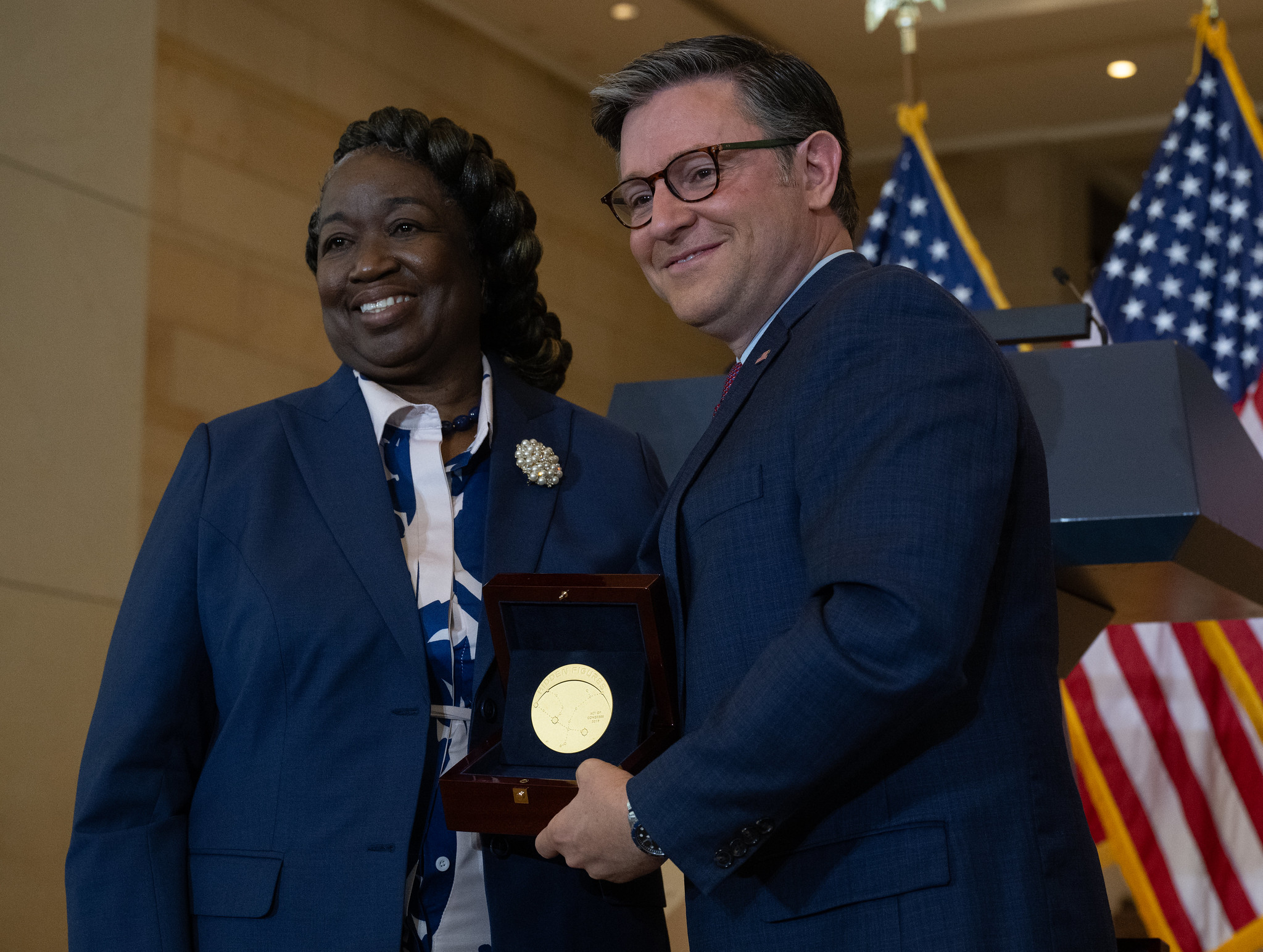 House Speaker Mike Johnson and Andrea Mosie, senior Apollo sample processor and lab manager who oversees the 842 pounds of Apollo lunar samples. Mosie accepted the medal awarded in recognition of all the women who served as computers, mathematicians, and engineers at the National Advisory Committee for Aeronautics and NASA between the 1930s and the 1970s.NASA/Joel Kowsky Andrea Mosie, senior Apollo sample processor and lab manager who oversees the 842 pounds of Apollo lunar samples, accepted the medal awarded to all NASA’s Hidden Figures. She began her career at NASA’s Johnson Space Center in Houston in the 1970s.
House Speaker Mike Johnson and Andrea Mosie, senior Apollo sample processor and lab manager who oversees the 842 pounds of Apollo lunar samples. Mosie accepted the medal awarded in recognition of all the women who served as computers, mathematicians, and engineers at the National Advisory Committee for Aeronautics and NASA between the 1930s and the 1970s.NASA/Joel Kowsky Andrea Mosie, senior Apollo sample processor and lab manager who oversees the 842 pounds of Apollo lunar samples, accepted the medal awarded to all NASA’s Hidden Figures. She began her career at NASA’s Johnson Space Center in Houston in the 1970s.
Mosie thanked Congress for supporting NASA’s campaign to send the first woman and first person of color to the Moon as part of Artemis and the agency’s efforts to provide “opportunities for people, more representative of the way our country looks, to understand humanity’s place in the universe.”
Several NASA Langley officials attended the event to honor the legacies of the women who worked there.
“I am humbled by the significant contributions and lasting impact of these women to America’s aeronautics and space programs. Their brilliance and perseverance still echo not just through the halls of NASA Langley, but through the entire Agency,” said NASA Langley’s Acting Center Director Dawn Schaible. “They are an inspiration to me and countless others who have benefited from the paths they forged.”
Rep. Eddie Bernice Johnson of Texas, who passed away in 2023, introduced H.R. 1396 – Hidden Figures Congressional Gold Medal Act on Feb. 27, 2019. It was signed into law later that year.
In 2015, President Barack Obama presented Katherine Johnson with the Presidential Medal of Freedom, the nation’s highest civilian honor.
Brittny McGraw and Joe Atkinson
NASA Langley Research Center

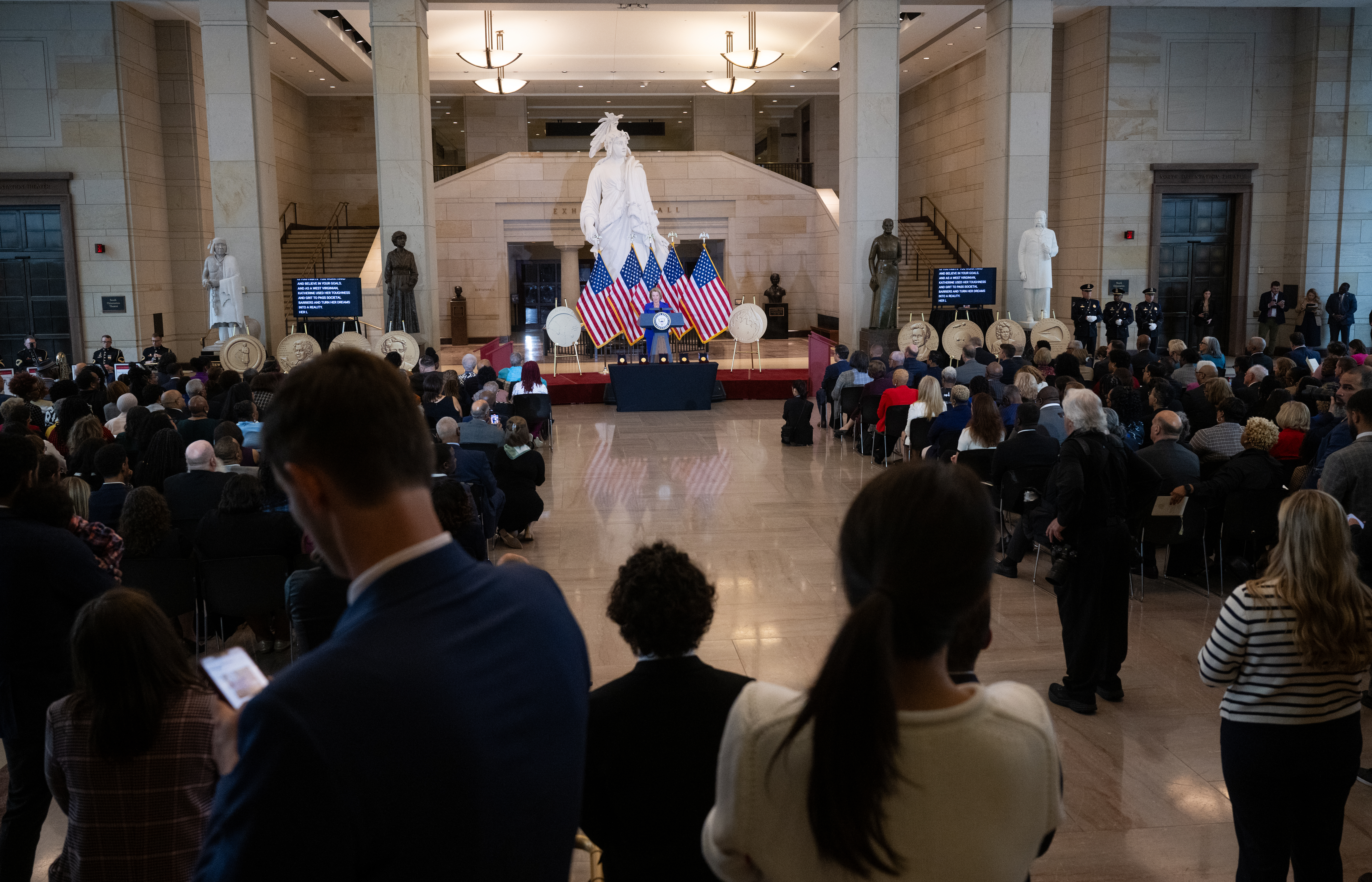
 4 min read Going Back-to-School with NASA Data Article 3 days ago
4 min read Going Back-to-School with NASA Data Article 3 days ago  3 min read Like a Diamond in the Sky: How to Spot NASA’s Solar Sail Demo in Orbit Article 1 week ago
3 min read Like a Diamond in the Sky: How to Spot NASA’s Solar Sail Demo in Orbit Article 1 week ago 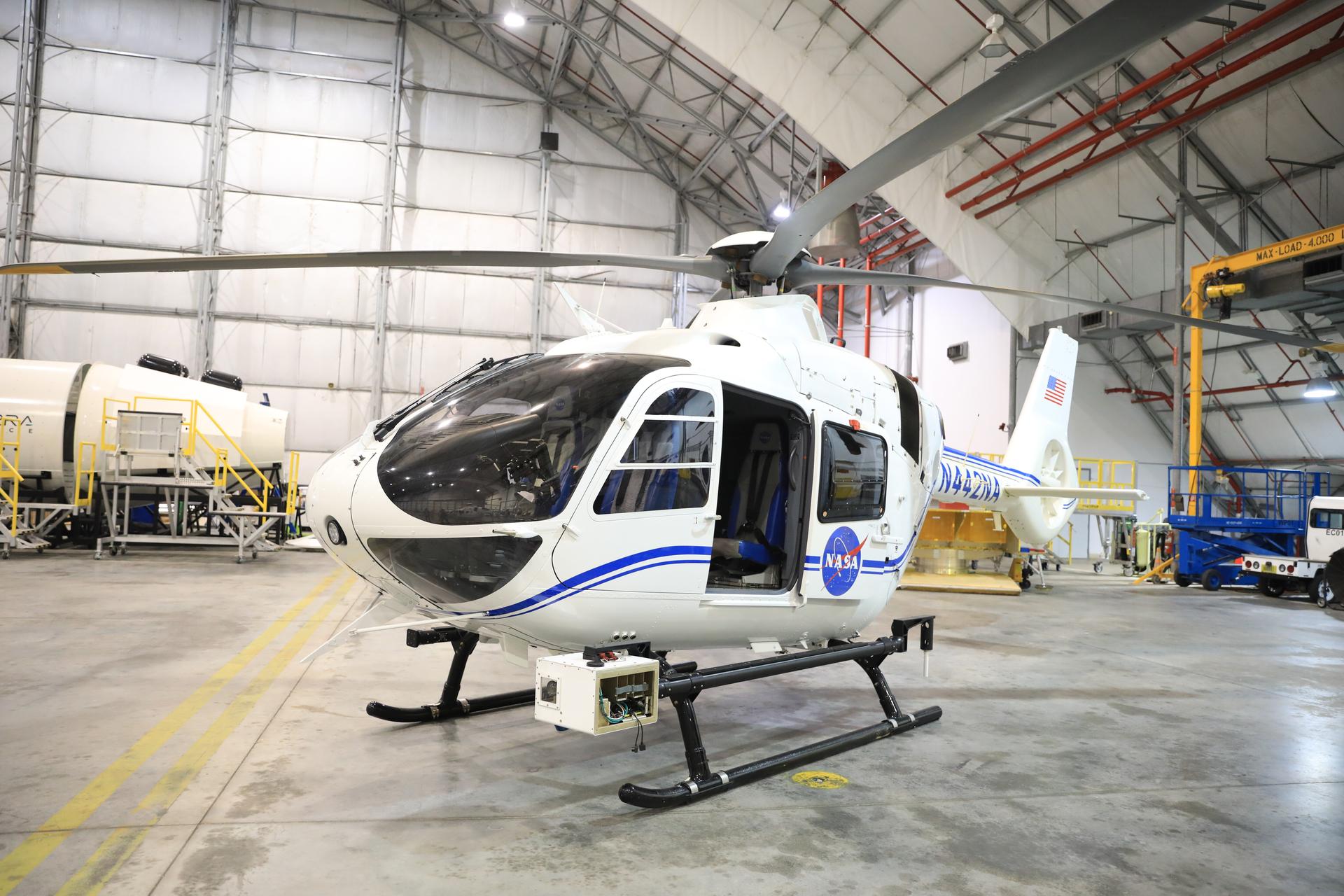 2 min read NASA Develops Pod to Help Autonomous Aircraft Operators Article 3 weeks ago
2 min read NASA Develops Pod to Help Autonomous Aircraft Operators Article 3 weeks ago 